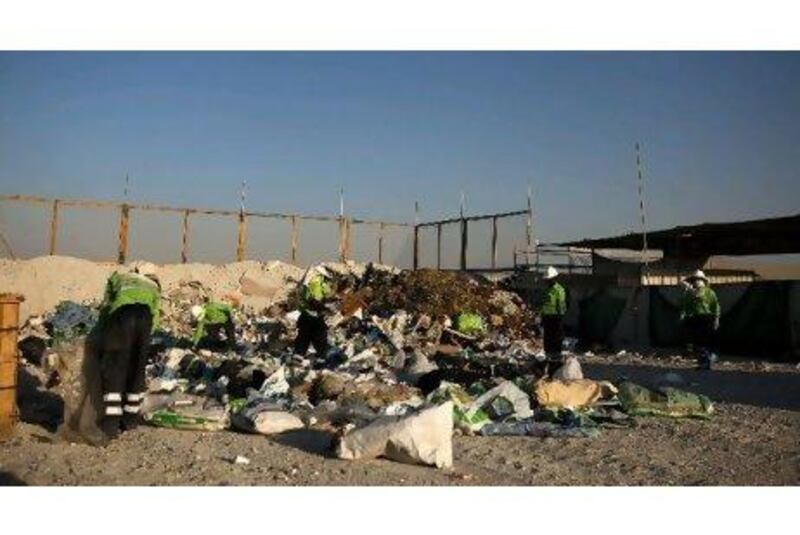A facility that recycles construction debris on Saadiyat Island can crunch about 200 tonnes of concrete every hour - and it is just getting started, officials say.
The plant started work in January 2009 and is used by more than 50 contractors.
However, loads are expected to increase between 2013 and 2020, which will be the busiest time for the project, said Millie Plowman, the environment manager of Saadiyat Island for the developer, TDIC.
The plant separates steel, wood, plastics and cardboard from construction debris, but concrete is the main focus. It is cleaned of pollutants and crushed for reuse, mainly as a material for temporary road construction.
"We are producing about 5,000 cubic metres of road base materials per month," said Steve Patterson, the waste services manager of Thiess Services Middle East, which manages the plant.
The plant also handles about 150 tonnes of wood every month. Some of it is given to contractors who work on the project to reuse. Some is sold for reuse in Dubai. Smaller pieces of wood and residues end up as fuel for Union Paper Mills in Dubai.
The plant also diverts about 50 tonnes of steel from landfills, and 10 tonnes of plastics and cardboard each.
"Overall, we are recovering about 80 per cent of the materials," Mr Patterson said.
Reusing the materials helps the environment by reducing the use of landfills. With one of the highest waste generation rates in the world, the UAE already has many landfills that are reaching capacity.
Reusing concrete also reduces dependence on new rock. Quarrying for virgin materials, which is usually done in the mountains on the east coast, has substantial environmental impact - disturbing wildlife and in some cases physically damaging mountain wadis - in addition to raising public health concerns in small towns and villages nearby.
The economic and environmental costs of transport must be considered as well, Mr Patterson said.
The transport waste material at the island has to travel no more than 12km, he said.
"Every truck load [of recycled material] is saving at least 300 truck kilometres," he said. "It makes a big impact."
Thiess Services Middle East charges Saadiyat contractors to deposit their waste at the recycling plant. The cost depends on how well sorted the waste is when it arrives. If different types of waste are separated, for example, contractors may be exempt from fees or charged as much as 50 per cent less.
"There is a charge here, it is not a free service, but the money goes to produce a product here and not just burn diesel to take the waste to landfill," he said.
The charges, he said, enable the company to produce recycled material that can meet Abu Dhabi's recently approved specifications on the material's strength, density and level of contamination.
"It has to be a good product for engineers to work with," Mr Patterson said.
The 27 sq km island will eventually be home to the Guggenheim Abu Dhabi museum and the Louvre Abu Dhabi museum.





